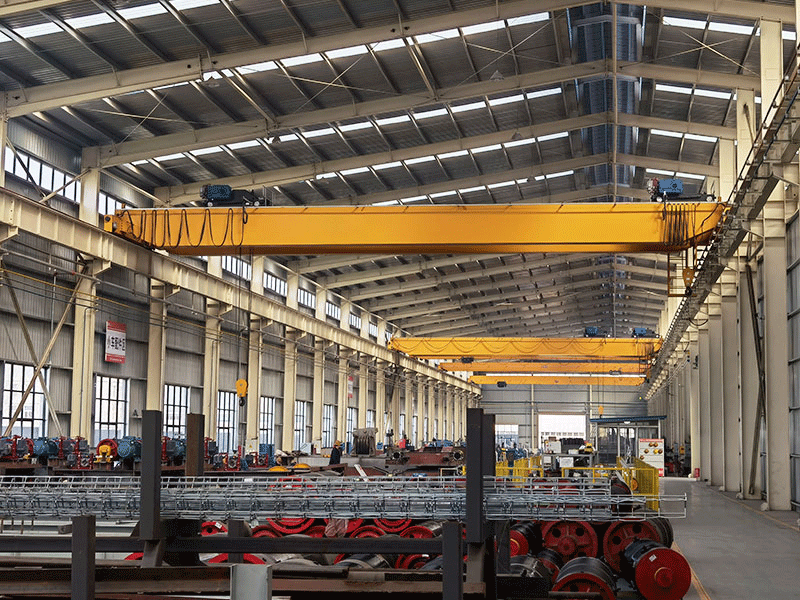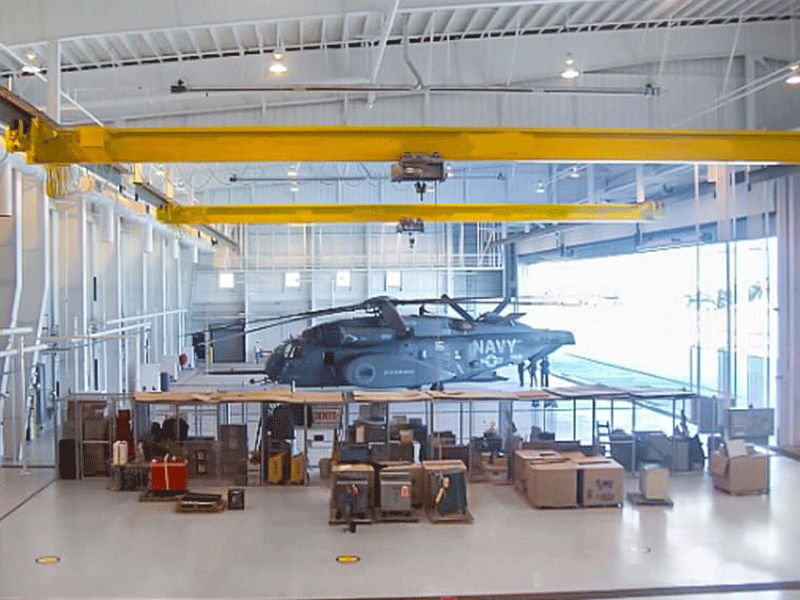Equipment inspection
1. Before operation, the bridge crane must be fully inspected, including but not limited to key components such as wire ropes, hooks, pulley brakes, limiters, and signaling devices to ensure that they are in good condition.
2. Check the crane’s track, foundation and surrounding environment to ensure there are no obstacles, water accumulation or other factors that may affect the safe operation of the crane.
3. Check the power supply and electrical control system to ensure they are normal and not damaged, and are grounded according to regulations.
Operation license
1. Overhead crane operation must be performed by professionals holding valid operating certificates.
2. Before operation, the operator must be familiar with the crane performance operating procedures and safety precautions.
Load Limitation
1. Overload operation is strictly prohibited, and the items to be lifted must be within the rated load specified by the crane.
2. For items with special shapes or whose weight is difficult to estimate, the actual weight should be determined through appropriate methods and stability analysis should be performed.
Stable operation
1. During operation, a stable speed should be maintained and sudden starting, braking or direction changes should be avoided.
2. After the object is lifted, it should be kept horizontal and stable and should not shake or rotate.
3. During the lifting, operation and landing of objects, operators should pay close attention to the surrounding environment to ensure that there are no people or obstacles.
Prohibited Behaviors
1. It is prohibited to perform maintenance or adjustments while the crane is running.
2. It is prohibited to stay or pass under the crane
3. It is prohibited to operate the crane under excessive wind, insufficient visibility or other severe weather conditions.
Emergency stop
1 In the event of an emergency (such as equipment failure, personal injury, etc.), the operator should immediately cut off the power supply and take emergency braking measures.
2. After an emergency stop, it should be reported to the relevant person in charge immediately and corresponding measures should be taken to deal with it.
Personnel safety
1. Operators should wear protective equipment that meets regulations, such as safety helmets, safety shoes, gloves, etc.
2. During the operation, there should be dedicated personnel to direct and coordinate to ensure the safety of personnel and equipment.
3. Non-operators should stay away from the crane operating area to avoid accidents.
Recording and Maintenance
1. After each operation, the operator should fill in the operation record including but not limited to operation time, load conditions, equipment status, etc.
2 Carry out regular maintenance and upkeep on the crane, including lubrication, tightening loose parts, and replacing worn parts to ensure normal operation of the equipment and extend its service life.
3. Any faults or problems discovered should be reported to the relevant departments in a timely manner and corresponding measures should be taken to deal with them.
SEVENCRANE Company has more safety operating procedures for overhead cranes. If you want to know more about the safety knowledge of bridge cranes, please feel free to leave a message. The production processes of our company’s various cranes are strictly controlled to ensure the safety of personnel and equipment and improve work efficiency. It is expected that all operators will strictly abide by these procedures and jointly create a safe and efficient working environment.









